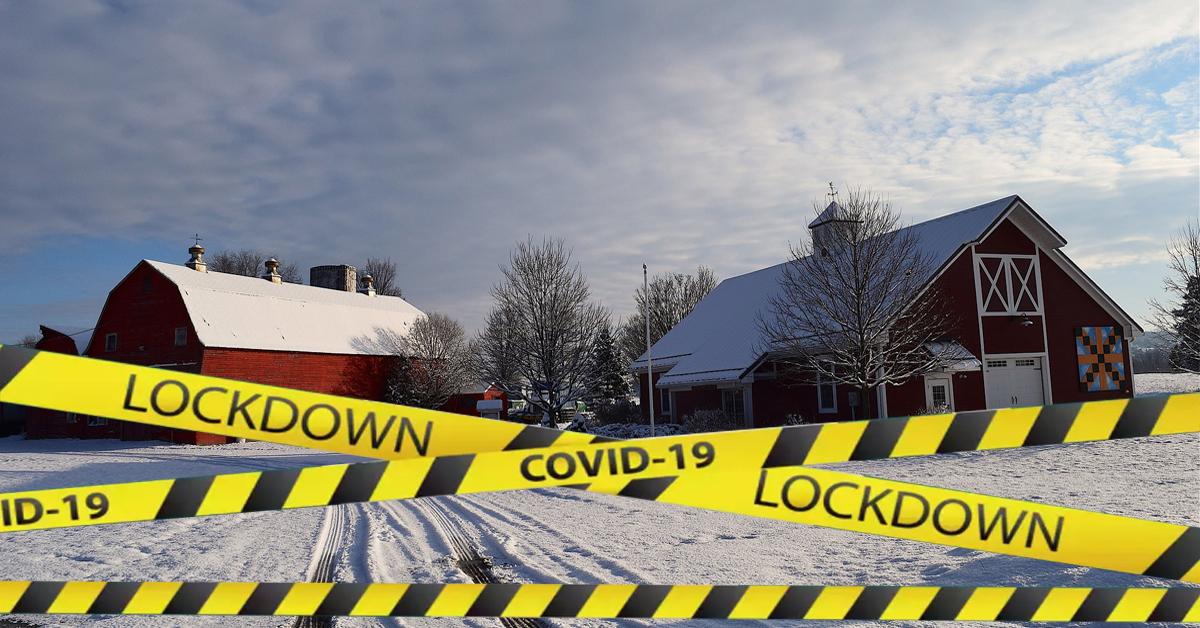Winter is coming. Are you ready?
We’re not talking about filling the hayloft, but preparing now in case Covid-related shutdowns occur again. Experts have long predicted that cases would increase throughout the fall and winter, and in some parts of Canada restrictions are already being re-introduced. While the widespread lockdowns many experienced in the spring aren’t expected, certain regions with high case counts may have to introduce stricter measures to slow the spread of the virus.
What can horse owners and facility managers do now to prepare?
1. Don’t panic
We’re in a much different situation than we were in March when the global pandemic hit and provinces began declaring a state of emergency. We now have much more information on how the virus is transmitted and what measures are likely effective in slowing the spread.
2. Determine what care your horse requires
What does “essential care” mean to you and is your current boarding situation able to provide it? The Code of Practice for the Care and Handling of Equines provides a clear definition of what it considers essential care. In reality, however, a retired horse on pasture board will have very different needs than a competition-fit grand prix show jumper who lives indoors. Some questions to consider:
- Does your barn currently provide all essential care, or are you responsible for some of it?
- Is your barn willing and able to provide services not currently included in your board, such as blanket changes, grooming, hand-walking, lungeing, etc.? And if so, at what additional cost?
- Can you designate a trusted friend or fellow boarder to care for your horse in the event you are ill or on 14-day isolation and can’t come to the barn?
- What is the stable manager’s backup plan should an employee test positive and all staff must self-isolate for 14 days?
3. Be prepared
We don’t know what the next few months will bring, so plan ahead. Take care of routine services now, including vaccines, dental care, saddle fitting, etc. Stock up on any supplements, medications, or other supplies your horse requires on a regular basis. Ensure fall and winter blankets and turnout rugs are repaired and clean, and are easily accessible by barn staff.
4. Ask tough questions
Now is the time for an honest evaluation of your current boarding arrangement and whether it’s the best situation for you and your horse during a potential state of emergency. Some questions to consider:
- Are you happy with the current level of care your barn provides?
- Do you have any concerns that adequate care may not be provided in your absence?
- Do you feel your stable owners, managers, and staff took Covid precautions and restrictions seriously during the spring shutdowns and created as safe an environment as possible?
- Are your fellow boarders/students still following the safety recommendations and any protocols implemented at your stable?
If you answered ‘no’ to any of the tough questions above, now is the time to sit down with your barn manager and evaluate whether your current situation is the right one for you and your horse, or whether a move to a more responsible facility is in order. While we’re all hoping for the best, planning for the worst can go a long way in making a difficult situation a little easier for everyone.

